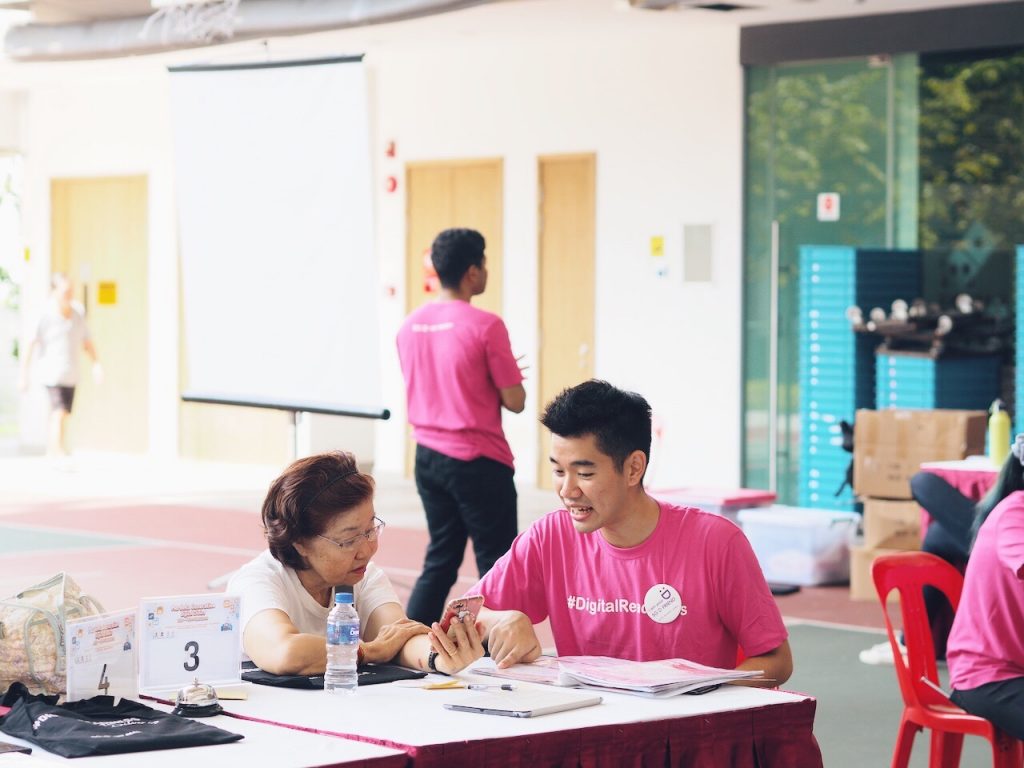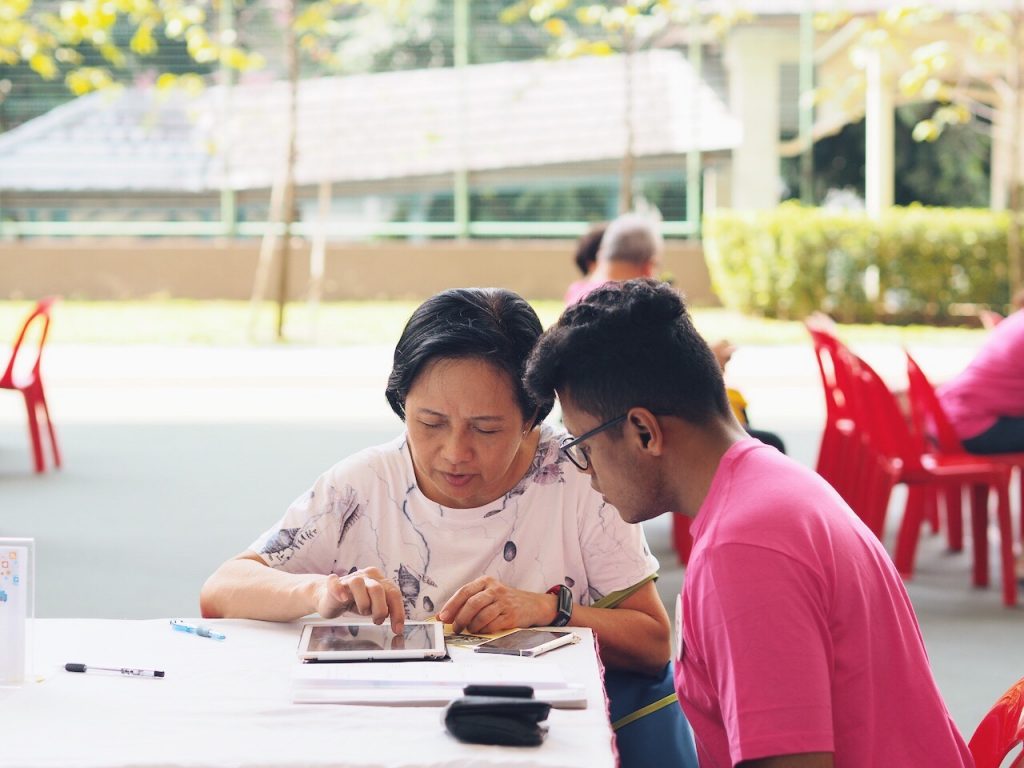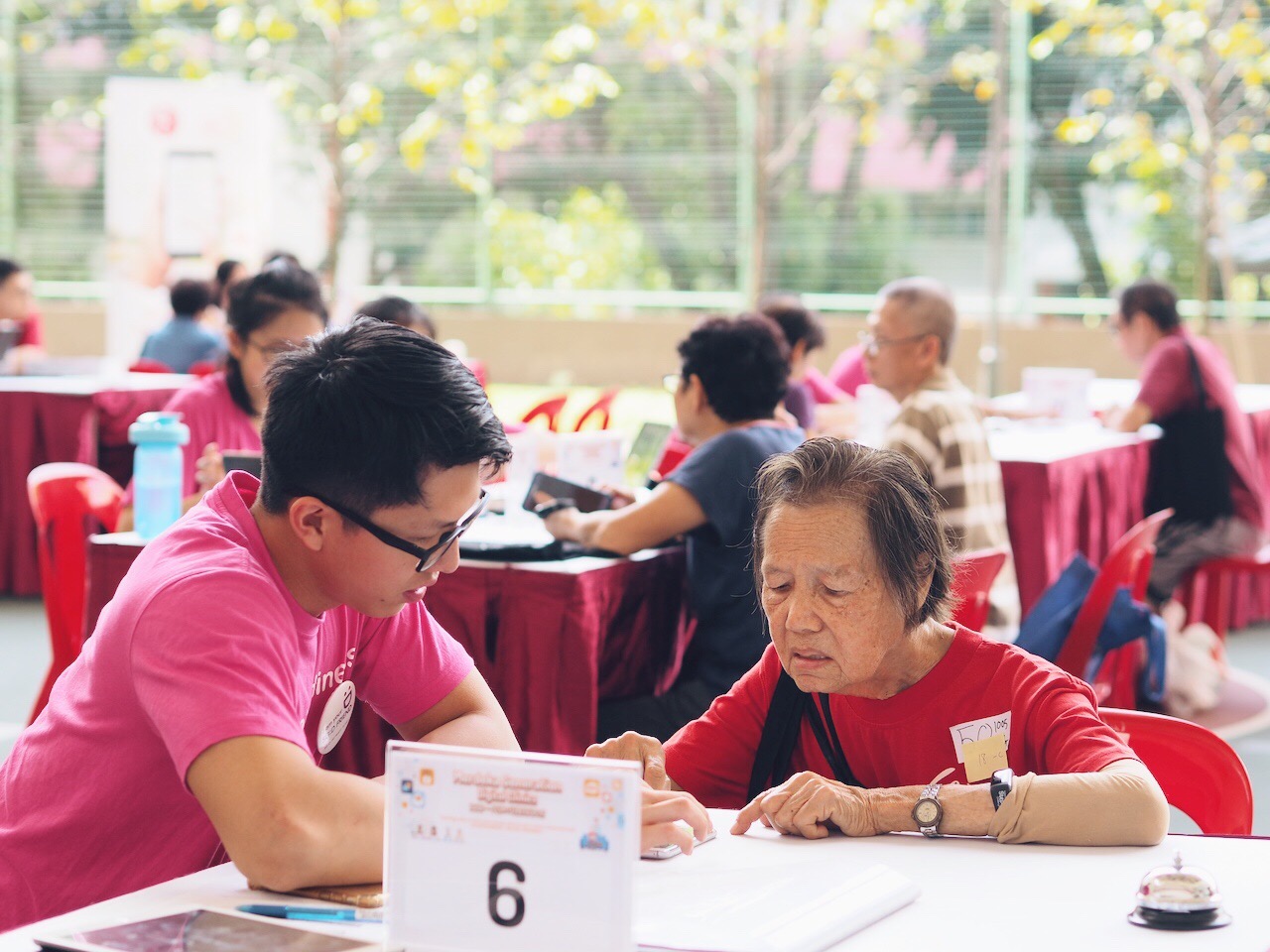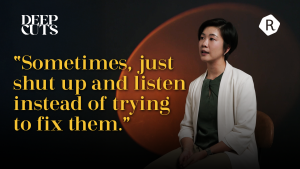As a student, I excelled at English, but detested giving English tuition.
Because I never struggled with the subject, I couldn’t empathise with those who did. I didn’t know why they couldn’t understand the language, so I didn’t know how to help. And so I was wholly unprepared for the staggering amount of impatience I’d reveal to the poor 12-year-old under my care.
A decade later, I am ashamed to admit that I revisit the same tongue clicks, eye rolls, and furrowed brows when I have to teach my parents how to figure out their smartphones.
“TSK. Click this button here,” I reiterate about five thousand times.
“You connect to wifi already? Huh, you don’t know what wifi is?”
“Why do you take so long to type a simple ‘Ok’? Can you type faster?”
After mere minutes of trying to get my parents to understand a basic function on their iPhone, or something else like how Facebook works, I usually give up. I never feel more like an ungrateful brat than when I wish they would just get it.
Unfortunately, such behaviour is nothing new, especially for other millennials who have also reached their wit’s end.

But this intuition is also the reason we get so impatient when we’re teaching the elderly how to adapt.
Think of it this way: many of us know it’s important to place ourselves in someone else’s shoes, but some shoes don’t quite fit. When we haven’t lived through the same era, it’s difficult to truly understand someone whose life experiences are vastly different from ours. We wouldn’t get their perspectives, their emotions, or even the way that various cultural aspects have shaped their lives.
As someone who learnt HTML from coding my own blog skins at 14, I figured the most effective way to understand a boomer’s concerns about technology would be to head to the one place that solves them: a digital clinic.

Think of this digital clinic as a super basic crash course in tackling “general enquiries” about technology. These include how to change a WhatsApp display picture, how to save a contact in WhatsApp, how to send emails, and how to download songs.
“My children don’t teach me. They do things for me instead, not teach me,” says Benny Chua, who’s 64 this year.
“I’m not afraid of technology. You have to try.”
Similarly, 70-year-old Catherine Wong’s children are “impatient” when they teach her how to use technology, but she “doesn’t take it to heart”. She knows them well enough to know they don’t mean it, but prefers to do things herself if she knows how to.
“They don’t usually explain to me. They just do what they need to do,” she echoes Benny’s—and probably my parents’—sentiment.
Catherine is also unafraid of learning how to use technology and proclaims herself “good for [her] age”, having retired from her administrative job as a civil servant a few years ago. The main problems she’s facing now include trying to figure out why her data from Facebook doesn’t get exported to a new phone.
I try to tell her that her personal data on Facebook is stored in the app, and that she only needs to download the Facebook app and sign in to the same account in her new phone to retrieve her data. Her eyes glaze over, and I can tell I’ve lost her at the word “app”.
I am left frustrated, although I’m not quite sure whether at myself or her.
But there are always exceptions to the norm; not all elderly require help.
“About 95% of the elderly I’ve seen have decent smartphones. Some even have Facebook and Instagram,” says 21-year-old Vishane Pereira, who works at the digital clinic as temporary staff.
“We had one elderly who was starting an online business on Facebook. She wanted to know how she could promote ads.”

Some are already familiar with booking a ride, so the staff teach them more ‘advanced’ functions, such as how to create bookmarks for certain places that they visit often and how to add two locations for a single trip.
“It’s important to demonstrate these steps using their phone,” says Alvin Eng, 35, who works for the company’s customer experience team.
I think of all the times when I learnt best in school (i.e. getting my hands dirty instead of listening to a lecture) and I feel a tinge of guilt that I never allowed my parents this opportunity when I answered their iPhone queries. I would simply reply to their questions, not show them how something was done.
My second rookie mistake was speaking to them in terms inherently associated with social media, such as “like”, “share”, “status”, “comment”. It’s akin to teaching someone another language by speaking said language—an analogy my father always draws, much to my annoyance, even though he’s right.
In the end, you merely talk around each other. No progress is made, and in fact, this might push the elderly further away from learning about technology.
“You have to put yourself in their shoes. Assume they have zero knowledge. Don’t use tech terms. Keep it simple,” says Vishane.
“Repeat your instructions five to 10 times if necessary. Be prepared that they might have to take some time to play with their phone after the initial instruction, and that they might come back later on with more questions.”
All the volunteers and temporary staff I speak to express heightened patience levels since helping at the digital clinic, which translates into their personal interactions with their parents and grandparents who are just learning to incorporate various forms of technology into their lives.
Teaching a stranger makes you more accommodating, since you might not feel as comfortable erupting in exasperation as you would with a family member.
But empathy is a skill that can—and should—be cultivated, especially when it comes to helping our parents and grandparents familiarise themselves with a whole new world. If it means that we swallow our frustrations, in order to help them learn skills that would benefit them in the long run, then our relationship might stand to improve in the end too.

What I remember even more distinctly is the feeling of utter satisfaction when I once taught a classmate how to solve a problem sum. I knew how to untangle the knotty mess because I could empathise with her struggle.
Essentially, I spoke her language.
Perhaps one day my mother will finally be willing to learn how to use the Grab app instead of waiting by the road for a cab till the cows come home, but I no longer want to sigh or shake my head when she expresses distrust towards newfangled apps.
Instead, I hope I take off my shoes, put on hers, and learn to get comfortable.






